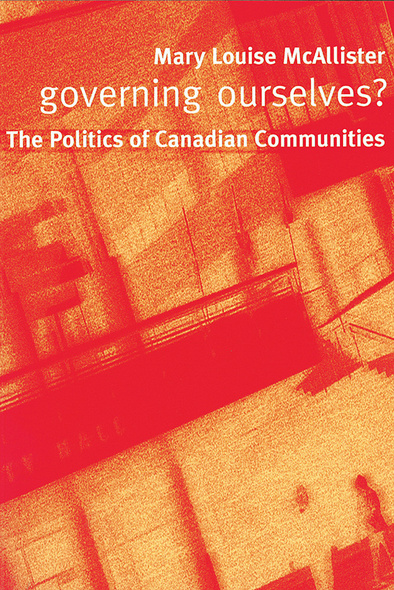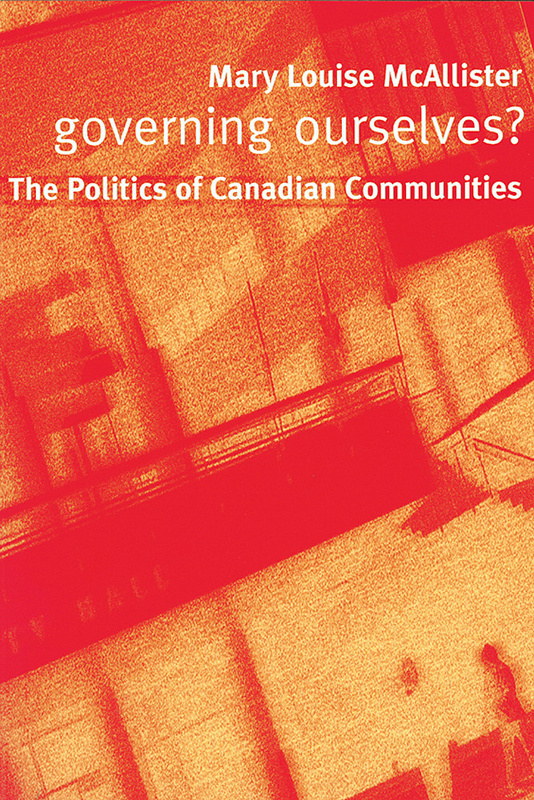
Popular rhetoric suggests that the twenty-first century has ushered in an era of homogeneity. Urbanization, globalization, amalgamation, media conglomeration, and technological convergence have become familiar terms. Given the pressures of integration and assimilation, how are people within communities able to make decisions about their own environment, whether individually or collectively? To what extent can they govern themselves?
Governing Ourselves? explores issues of influence and power within local institutions and decision-making processes using numerous illustrations from municipalities across Canada. It shows how communities large and small, from Toronto to Iqaluit, have distinctive political cultures and therefore respond differently to changing global and domestic environments. Case studies of Prince George, Sherbrooke, Saint John, and Kitchener-Waterloo are used to illuminate historical and contemporary challenges to local governance.
This stimulating book covers traditional topics such as government structures and institutions and intergovernmental relations. It also reaches more broadly into areas of inquiry relevant to geography, urban planning, environmental studies, public administration, sociology, and Canadian studies.
Awards
- 2005, Winner - Outstanding Academic Title, Choice Magazine
By asking the question, ‘are we governing ourselves?’, McAllister delves into theses muddy waters in an admirably honest manner ... McAllister’s book is a useful teaching and scholarly resource for grappling with the democratic and administrative uncertainty that remains a large dimension of Canada’s public sector.
Highly recommended.
Tables, Figures, and Boxes
Preface
Acknowledgments
Introduction
Part 1: Local Democracy, a Contested Notion
1 Local Self-Government: Perspectives on Democracy
2 Local Democracy and Self-Government: The Historical Legacy
3 Avenues of Participation in Local Governance
Part 2: Shifting Responsibilities: Intergovernmental Relations
4 The Evolution of Provincial-Local Relations and Municipal Government
5 Municipal Restructuring
6 Contemporary Intergovernmental Relations
Part 3: The Politics of Space, Place, and Ecosystems
7 Core and Peripheries to Networked Societies
8 The Politics of Urban Planning
9 Environmental Challenges: Redefining the Public Interest
Part 4: The Business of Local Administration and Policy
10 Local Public Administration
11 Business, Management, and the Municipal Corporation
Part 5: Surfing into the Twenty-First Century: Local Political Communications
12 Local Channels of Information
Notes
Selected Bibliography
Photography Credits
Index







